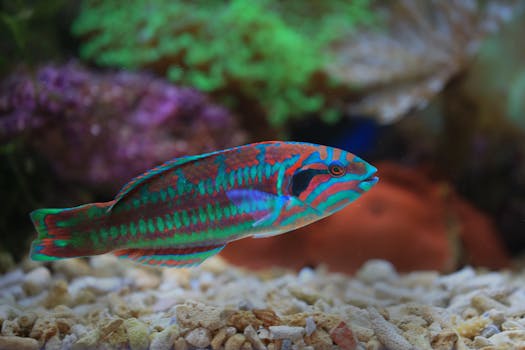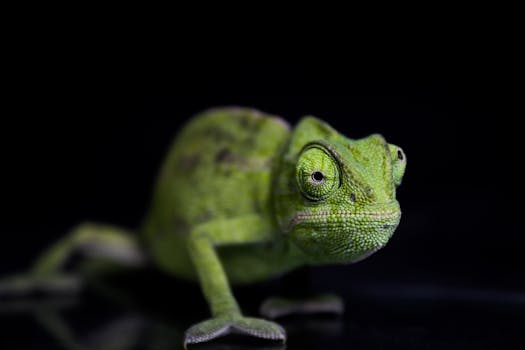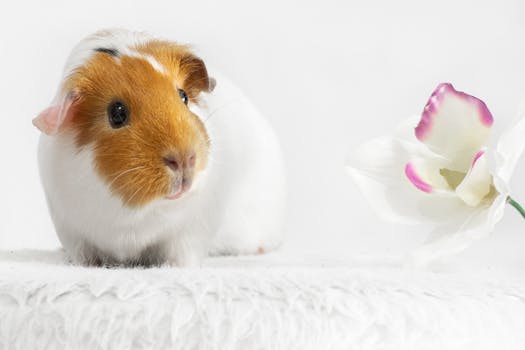Police Raid on Animal Trafficking: Night Vision Saves Lives
Image Source: pexels
Impact of the Raid on Animal Trafficking
Rescue and Rehabilitation of Animals
The successful raid on the international animal trafficking ring by the Spanish police not only disrupted the illegal trade but also led to significant efforts to ensure the well-being of the rescued animals. Collaborating with animal welfare organizations, law enforcement agencies worked tirelessly to provide immediate care and rehabilitation for these animals.
Upon rescue, the animals were carefully examined by veterinarians to assess their health conditions and identify any injuries or illnesses resulting from their captivity. Specialized facilities were designated to house and care for each species, ensuring they received appropriate nutrition, medical treatment, and psychological support.
Collaboration with animal welfare organizations played a vital role in this process. These organizations brought their expertise in handling and rehabilitating exotic animals, providing valuable guidance on proper care protocols. They also facilitated the transfer of animals to sanctuaries or wildlife rehabilitation centers equipped with suitable environments for their recovery.
The success stories that emerged from this collaborative effort are heartwarming. Many animals that were once victims of cruel exploitation have now been given a second chance at life. Through dedicated rehabilitation programs, they have regained physical strength, learned essential survival skills, and gradually adapted to natural behaviors.
For instance, a group of confiscated primates was reintroduced into a protected forest reserve where they could live freely in a safe environment. With ongoing monitoring and support from wildlife experts, these primates have successfully integrated into existing populations and are thriving in their natural habitat.
Legal Consequences for Traffickers
The raid on the animal trafficking ring resulted in arrests and prosecutions for individuals involved in this illicit trade. Law enforcement agencies meticulously gathered evidence during the operation, ensuring a strong case against those responsible for perpetuating animal trafficking.
Those apprehended faced severe legal consequences for their actions. The penalties and sentences varied depending on factors such as the level of involvement, severity of offenses committed, and previous criminal records. Individuals found guilty of animal trafficking faced significant fines, imprisonment, and the potential forfeiture of assets acquired through their illegal activities.
The successful prosecution of these traffickers sends a powerful message to others involved in similar criminal enterprises. The raid and subsequent legal actions demonstrate that law enforcement agencies are committed to combating animal trafficking and will hold those responsible accountable for their actions. This deterrence effect is crucial in discouraging future individuals from engaging in such activities, ultimately protecting vulnerable animals from exploitation.
Furthermore, the collaboration between law enforcement agencies and animal welfare organizations during the legal proceedings ensures that the interests of the rescued animals are represented. These organizations provide expert testimony, advocate for appropriate sentencing, and work towards securing custody of the animals to ensure their ongoing care and well-being.
The impact of this raid extends beyond immediate consequences for individual traffickers. It serves as a warning to other criminal networks involved in animal trafficking that law enforcement agencies are actively targeting these operations. By disrupting one ring, authorities create a ripple effect that can potentially dismantle larger networks engaged in this illicit trade.
In the next section, we will explore the importance of collaboration between law enforcement agencies and animal welfare organizations in combating animal trafficking and how their joint efforts can lead to more effective outcomes.
Collaboration between Law Enforcement and Animal Welfare Organizations
Importance of Collaboration
The collaboration between law enforcement agencies and animal welfare organizations is crucial in the fight against animal trafficking. By joining forces, these entities can leverage their unique strengths and resources to achieve more effective outcomes.
One of the key benefits of cooperation is the sharing of resources and expertise. Law enforcement agencies possess investigative skills, legal authority, and access to intelligence networks that are essential for identifying and apprehending traffickers. On the other hand, animal welfare organizations bring specialized knowledge in handling and caring for animals affected by trafficking, as well as established networks within the conservation community.
By pooling their resources, these organizations can enhance their collective impact. Joint efforts allow for a more comprehensive approach to combating animal trafficking, addressing both the criminal aspects of the trade and the welfare needs of the animals involved.
Examples of Successful Collaborations
Numerous successful collaborations between law enforcement agencies and animal welfare organizations have yielded positive outcomes in combating animal trafficking. These partnerships serve as models for future initiatives.
One such example is the collaboration between INTERPOL's Environmental Security Program and various wildlife conservation organizations. Through joint operations, training programs, and information sharing, this partnership has resulted in significant seizures of trafficked animals and dismantling of criminal networks involved in wildlife crime.
In another case study, a local police department partnered with a regional wildlife rehabilitation center to address an increase in illegal bird smuggling. The police provided intelligence on suspected traffickers while the rehabilitation center offered expertise in caring for confiscated birds. This collaboration led to successful arrests, rescue operations, and subsequent rehabilitation efforts.
These collaborations have demonstrated mutually beneficial outcomes for both law enforcement agencies and animal welfare organizations. Law enforcement gains valuable insights into the complexities of animal trafficking from experts who work directly with rescued animals. Animal welfare organizations benefit from increased support in terms of legal advocacy, access to law enforcement resources, and improved coordination during rescue operations.
Lessons learned from these collaborative initiatives include the importance of establishing clear communication channels between all stakeholders involved. Regular meetings, joint trainings, and information-sharing platforms facilitate effective cooperation among different entities.
Recommendations for Future Collaborations
To enhance cooperation between law enforcement agencies and animal welfare organizations in combating animal trafficking, several recommendations can be implemented:
Training programs: Develop specialized training programs that equip law enforcement officers with knowledge about wildlife laws, identification techniques for trafficked animals, investigation methods specific to wildlife crime, and protocols for collaborating with animal welfare organizations.
Information sharing: Establish mechanisms for timely exchange of information between law enforcement agencies and animal welfare organizations regarding ongoing investigations or potential cases involving animal trafficking.
Policy changes: Advocate for policy changes that prioritize collaboration between law enforcement agencies and animal welfare organizations when addressing issues related to wildlife crime.
Joint task forces: Create dedicated task forces comprising representatives from both sectors to ensure continuous coordination on investigations targeting organized criminal networks engaged in animal trafficking.
Public awareness campaigns: Collaborate on public awareness campaigns aimed at educating communities about the consequences of supporting or engaging in illegal wildlife trade while promoting responsible behavior towards animals.
By implementing these recommendations, future collaborations can be strengthened to effectively combat animal trafficking while safeguarding both human interests and biodiversity.





